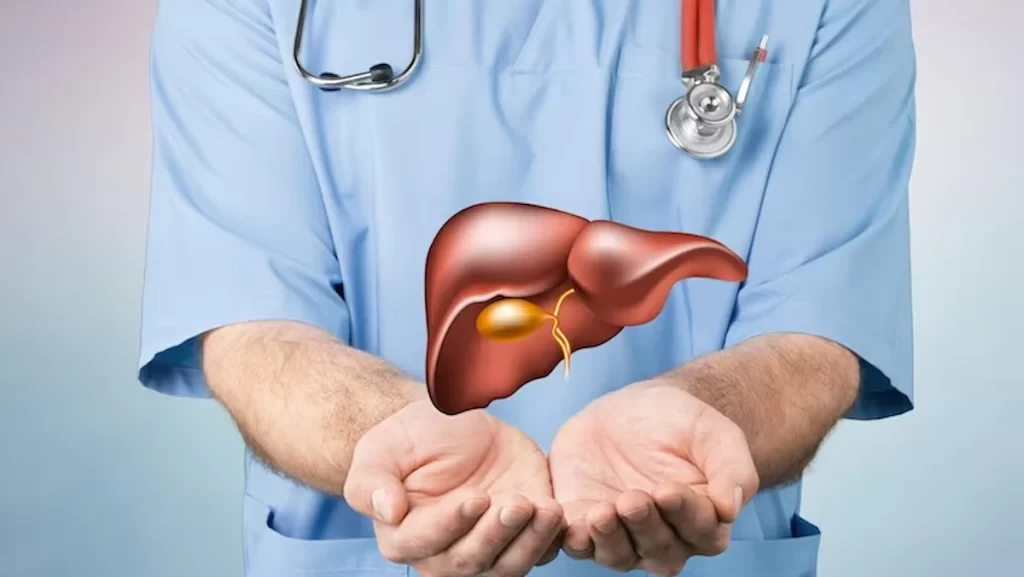
Chronic liver disease is a long-term condition characterized by ongoing liver damage and impaired liver function. Chronic liver disease treatment in Chennai is provided to treat liver disorders, including viral hepatitis, cirrhosis, autoimmune hepatitis, primary sclerosing cholangitis and primary biliary cholangitis.
This article provides comprehensive insights into Chronic Liver Disease treatment in Chennai, including its causes, risk factors, symptoms, diagnosis, and treatment options. By understanding chronic liver disease, individuals can take proactive measures to prevent its development, seek timely medical care, and make informed decisions about their liver health.
Liver cancer can develop from various causes and risk factors, impacting its incidence and progression:
Understanding these causes and risk factors can aid in prevention strategies and early detection of liver cancer.
The best hepatology hospital in Chennai places a paramount focus on the symptoms and potential complications associated with chronic liver disease. In its early stages, chronic liver disease may present as asymptomatic, making early detection challenging. However, as the condition progresses, patients may experience symptoms such as fatigue, jaundice, abdominal pain, weight loss, fluid retention, and easy bruising. These signs signal the need for comprehensive evaluation and treatment. For those seeking unparalleled care for Chronic Liver Disease treatment in chennai, the hospital's expertise, advanced diagnostics, and patient-centric approach ensure a thorough understanding and tailored treatment plan for optimal outcomes.
Chronic liver disease treatment in Chennai also addresses potential complications of chronic liver disease, including portal hypertension, ascites (fluid accumulation in the abdomen), hepatic encephalopathy (brain dysfunction), variceal bleeding, liver failure, and an increased risk of liver cancer. Early recognition, timely medical intervention, and appropriate management are crucial in managing symptoms and preventing complications.
This section discusses the diagnostic techniques used to detect and evaluate chronic liver disease in Chennai. It explains that a combination of medical history, physical examination, blood tests (including liver function tests, viral hepatitis serology, and specific autoantibodies), imaging studies (ultrasound, CT scans, MRI), and liver biopsy may be employed to diagnose and evaluate chronic liver disease. This comprehensive approach ensures effective diagnosis and sets the stage for appropriate treatment at a facility like CTS Hospitals, which specializes in Chronic Liver Disease treatment in Chennai.
The best hepatology hospital in Chennai highlights the importance of identifying the underlying cause, assessing the extent of liver damage, and determining the stage of the disease.
Chronic liver disease treatment in Chennai depends on the underlying cause and the specific condition. This section explores the strategies used to address chronic liver disease, including lifestyle modifications, medication, interventions to manage complications, and, in some cases, liver transplantation.
It discusses the importance of alcohol cessation for individuals with alcohol-related liver disease, antiviral therapy for viral hepatitis, immunosuppressive medications for autoimmune conditions, and interventions such as paracentesis or trans jugular intrahepatic portosystemic shunt (TIPS) for managing complications like ascites and variceal bleeding. Regular medical follow-up, adherence to treatment plans, and ongoing monitoring are crucial components of managing chronic liver disease.
Prevention plays a significant role in mitigating the risk of chronic liver disease. This section discusses preventive measures along with chronic liver disease treatment in Chennai, including vaccination for hepatitis A and B, practicing safe sex, avoiding sharing needles, maintaining a healthy weight, adopting a balanced diet, limiting alcohol consumption, and avoiding hepatotoxic medications. It emphasizes the importance of public health initiatives, education, and awareness campaigns to promote liver health and prevent the development of chronic liver disease.
The liver is vital for overall health, and various conditions can affect its function. Here are common types of liver diseases:
In many cases, liver disease treatment in Chennai can be managed without surgery. Depending on the specific liver condition and its severity, treatment options may include lifestyle modifications, medications, dietary changes, and regular medical monitoring. For advanced liver disease, liver transplantation could be considered. The medical team will assess your condition and develop a personalized treatment plan that best suits your needs.
The safety of combining medications for liver disease treatment in Chennai depends on the individual patient’s condition and medical history. The liver disease specialists carefully evaluate each case to avoid potential drug interactions and adverse effects. It’s essential to disclose all current medications, supplements, and allergies during consultations. This creates a safe and effective treatment regimen, ensuring optimal management of the liver disease.
The extent to liver disease treatment in Chennai can reverse liver damage varies based on the disease’s stage and underlying cause. In early stages, appropriate treatment and lifestyle changes can lead to significant improvements and prevent further damage. However, for advanced liver disease or cirrhosis, complete reversal may not be possible, but timely and appropriate treatment can improve quality of life.
Chronic liver disease requires comprehensive management tailored to its specific cause and severity. Treatment options may include lifestyle modifications, medication, dietary changes, and, in some cases, liver transplantation. For individuals seeking treatment in Chennai, CTS Hospital offers a range of services to address chronic liver disease. Please consult with their medical professionals for personalized care and guidance.
The treatment for chronic liver disease depends on the specific underlying cause and the stage of the disease. There is no single “best” medicine, as treatment often involves managing symptoms, addressing the root cause, and promoting overall liver health. In Chennai, India, individuals with chronic liver disease can consult with hepatologists and gastroenterologists who will develop personalized treatment plans tailored to their condition and needs.
For top-quality treatment of chronic liver disease in Chennai, CTS Hospitals is a reputable choice. With a dedicated team of experienced healthcare professionals and state-of-the-art facilities, CTS Hospitals offers comprehensive care for liver-related conditions. Their commitment to advanced medical practices and patient well-being makes them a trusted option for those seeking effective treatment for chronic liver diseases in Chennai.